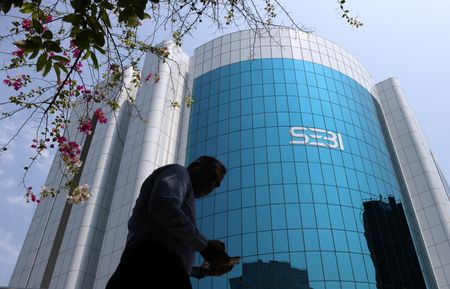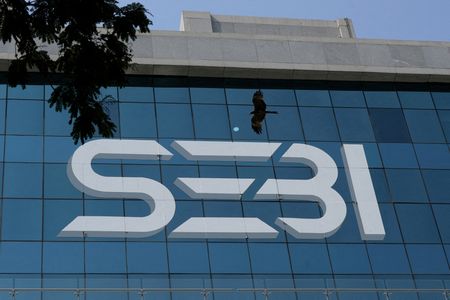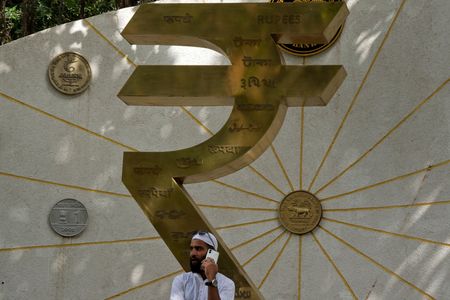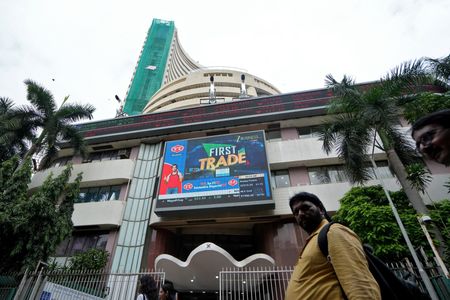(Reuters) -India’s market regulator on Monday proposed to reduce the minimum size of share sale for large companies looking to list their stock in a bid to simplify fund-raising.
The proposal includes allowing companies to sell a minimum of 2.5% of their paid-up share capital in an initial public offering from the mandated 5% if their market capitalisation is above 5 trillion rupees ($57 billion) after the listing.
The Securities and Exchange Board of India (SEBI) said that large issuers often face challenges in significantly diluting their equity through IPOs as the market might struggle to absorb such sizable offerings.
That can discourage companies from opting to list in India and restrict investment opportunities for domestic investors, the regulator said.
The SEBI’s proposals come at a time when major initial public offerings, such as those of Reliance Jio and the National Stock Exchange of India, are in the pipeline.
The regulator also proposed that companies with post-listing market capitalisation of 500 billion rupees to 1 trillion rupees could now meet the required 25% public float in five years instead of the current three years
Companies with post-listing market cap exceeding 1 trillion rupees will be allowed up to 10 years to comply with the norms.
“The SEBI’s consultation paper recognises several challenges faced by large issuers when raising capital from the public,” said Abhimanya Bhattacharya, partner at law firm Khaitan and Co
“These are welcome changes suggested by the regulator and will enable large issuers to plan their IPO and post-dilution plans effectively,” Bhattacharya said.
Additionally, the regulator also withdrew its earlier proposal of restricting retail investors’ quota in IPOs exceeding 50 billion rupees to 25% from the current limit of 35%.
The SEBI has invited public comments on the proposals until September 8.
($1 = 87.3590 Indian rupees)
(Reporting by Nishit Navin and Jayshree P Upadhyay; Editing by Anil D’Silva)











